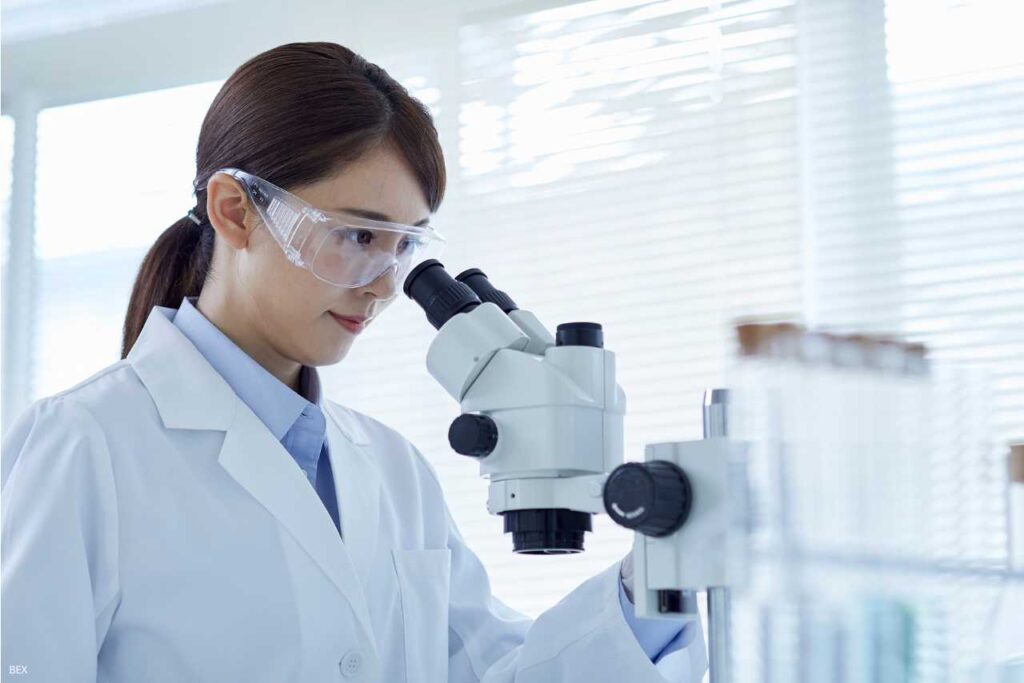For years, artificial intelligence has dominated technological discourse, captivating imaginations with promises of self-driving cars, personalized assistants, and even medical breakthroughs. From deep learning algorithms conquering complex games to predictive analytics transforming industries, AI’s impact has been undeniable and transformative. But as AI matures and its applications become increasingly integrated into our daily lives, a new frontier is rapidly emerging, poised to usher in the next great technological revolution: biotechnology.
While AI focuses on augmenting and replicating human cognitive abilities through computational power, biotechnology delves into the very fabric of life itself. It’s the science of using living organisms or their products to create new technologies, solve problems, and improve human health and the environment. And just as AI leveraged the power of data and processing, biotech is now harnessing an explosion of understanding about genetics, molecular biology, and cellular processes.
The parallels between the current state of biotech and the early days of AI are striking. For decades, both fields saw gradual progress, often confined to academic labs or niche applications. Then, a convergence of factors – increased computational power, advancements in data sequencing, and innovative tools – propelled AI into the mainstream. Biotech is now experiencing a similar inflection point.
One of the most significant drivers is the plummeting cost of DNA sequencing and synthesis. What once cost millions of dollars and took years can now be achieved for a fraction of the price in a matter of days. This accessibility has unleashed an unprecedented era of discovery, allowing scientists to understand biological systems with unparalleled detail.
Furthermore, breakthrough technologies like CRISPR-Cas9 gene editing have provided an unprecedented level of precision and control over the genetic code. CRISPR, often described as a «molecular scissor,» allows scientists to accurately cut and paste DNA sequences, offering the potential to correct genetic diseases, engineer crops for enhanced resilience, and even program cells to fight cancer. The implications are profound, moving beyond simply observing life to actively rewriting its instructions.
So, what does this biotech revolution look like in practice?
In Medicine: The future of healthcare is undeniably biological. We’re already seeing the rise of personalized medicine, where treatments are tailored to an individual’s unique genetic makeup. Gene therapies are moving from experimental trials to approved treatments for conditions once considered incurable. Cell therapies, like CAR T-cell therapy for certain cancers, are demonstrating remarkable success by re-engineering a patient’s own immune cells to combat disease. Imagine a future where age-related diseases are not just managed but reversed, where organ regeneration becomes commonplace, and where inherited conditions are eradicated before birth.
In Agriculture and Food: Biotechnology is crucial for addressing global food security and sustainability. Genetically modified crops have been a contentious topic, but advancements are leading to plants that require less water, are resistant to pests, and offer enhanced nutritional value. Beyond crops, cellular agriculture is developing cultured meat and dairy products, offering a sustainable alternative to traditional animal farming with significantly reduced environmental impact.
In Industry and Materials: Imagine materials that can self-repair, biodegradables that replace plastics, or industrial processes powered by engineered microorganisms. Biotech is enabling the production of sustainable fuels, advanced biomaterials, and more efficient manufacturing processes. From creating novel fabrics to filtering pollutants, the possibilities for bio-inspired and bio-produced solutions are vast.
The Symbiotic Relationship with AI:
Crucially, the rise of biotechnology doesn’t mean the demise of AI. In fact, the two fields are becoming increasingly intertwined. AI is an indispensable tool for biotechnology, helping to analyze vast biological datasets, predict protein structures, design new molecules, and accelerate drug discovery. Machine learning algorithms can identify patterns in genetic information that would be impossible for humans to discern, leading to faster insights and more effective biological engineering. AI will act as the intelligent engine driving the biotech revolution forward, just as biotech will provide AI with increasingly complex biological challenges to solve.
Ethical Considerations and the Road Ahead:
As with any powerful technology, biotechnology presents significant ethical considerations. Gene editing in humans, the potential for unintended environmental consequences, and the equitable access to these life-altering advancements are all critical discussions that society must navigate. Robust regulatory frameworks, public engagement, and a commitment to responsible innovation will be paramount.
In conclusion, while AI has transformed our digital world, biotechnology is poised to transform our physical and biological world in even more fundamental ways. By understanding, manipulating, and engineering life itself, we are entering an era with unprecedented potential to solve some of humanity’s most pressing challenges, from disease and climate change to food scarcity. The biotech revolution isn’t just coming; it’s already here, building on the foundation laid by AI and promising a future that is, quite literally, alive with possibility.





